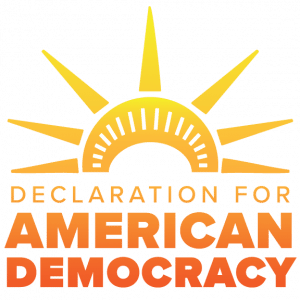This Week in 200 Words
This week, as coronavirus spreads and upends primary elections, both Florida and Illinois saw decreased turnout and confusion on Tuesday over how the election was proceeding. Conversely, Arizona, which relies heavily on early voting in the primary, actually saw increased total turnout compared to 2016. Ohio, Louisiana, Georgia and Kentucky have all announced they are postponing their primaries over virus fears.
In national updates, Senators Amy Klobuchar and Ron Wyden have introduced the Natural Disaster and Emergency Ballot Act of 2020 to expand voting options while decreasing infection risk. And a wide range of politicians, officials and activists are advocating increased mail-in voting and early voting to mitigate the virus’s impact on the elections.
National News
Washington Post – Amy Klobuchar & Ron Wyden: Here’s how to guarantee coronavirus won’t disrupt our elections
The coronavirus has brought unprecedented disruptions to the daily lives of Americans. Something as commonplace as walking into the grocery store is a troubling reminder that the world is facing a challenge that most of us have never seen before.
Our top priority right now is to make sure that people are safe in the face of this global pandemic. Federal, state and local health-care providers and first responders are working overtime to protect people, and we must give them the resources they need to do their jobs. The federal government must also fund testing, vaccine development and economic assistance for those whose lives have been turned upside down.
In the midst of this crisis, we must also remember to protect the foundation of our democracy by ensuring that every eligible American can safely cast a ballot in the upcoming elections. The coronavirus should not stop our citizens from casting their ballots.
The stakes are high. In less than eight months, elections will be held across the country that determine not only who the president will be but also the outcome of 11 gubernatorial elections, 35 of 100 U.S. Senate seats and all 435 seats in the House of Representatives. Primary elections underway across the country will decide who will be on the ballot in November, and we have already seen them affected by this pandemic.
[…] The best way to ensure that this virus doesn’t keep people from the ballot box is to bring the ballot box to them. We must allow every American the ability to vote by mail. And we must expand early voting so that voters who are not able to vote by mail are not exposed to the elevated infection risks of long lines and crowded polling locations.
On Monday, we will introduce the Natural Disaster and Emergency Ballot Act of 2020 to help election officials meet this pandemic head-on. Our legislation will guarantee every voter a secure mail-in paper ballot and help states cover the cost of printing, self-sealing envelopes, ballot tracking and postage. Vote-by-mail is a time-tested, reliable way for Americans to exercise their constitutional rights, and it is the right response to this crisis.
Slate – How to Protect the 2020 Election From the Coronavirus
[…] Mail-in balloting, which is used almost exclusively in several states such as Washington and Colorado, would give voters a chance to vote without having to show up at the polls. It would ensure that fewer people would be disenfranchised. And importantly it would provide a good argument against an attempt to try to postpone voting in November (or worse yet having state legislatures appoint presidential electors themselves without a vote of the people). Our democracy needs to continue to function, and the election could well be a referendum on President Donald Trump’s leadership during the coronavirus crisis. The worst result would be for Trump’s own incompetence to provide a basis for keeping him in office longer.
[…] A law requiring each state to offer a mail-in balloting option would have to be carefully crafted. It has to deal with the language provisions of the Voting Rights Act, which require language assistance for voters whose first language is not English. As Dale Ho argues, the rules for processing those absentee ballots have to be fair so voters are not disenfranchised by administrative error. And as Dave Daley argues that vote by mail is not without its problems for minority voters and other vulnerable voters, meaning the congressional legislation should address issues like reaching voters who are not regularly served by the postal service. Sen. Ron Wyden’s bill is a good start in thinking about what final federal legislation should look like.
Salon – We need to emergency-proof our elections before November. In a democracy, the vote must go on
The coronavirus has begun threatening elections. British prime minister Boris Johnson on Friday postponed U.K. local and mayoral elections for a year due to the outbreak. Louisiana, meanwhile, became the first state to reschedule its presidential primary, pushing it from April 4 all the way to mid-June.
The same fears led Wyoming Democrats to cancel the in-person portion of their April 4 caucus, but state law allows them to make a sensible adjustment: The entire caucus will now be conducted by mail, although voters can still drop off completed ballots at one of several collection centers.
Everybody should have that right. While rallies have been canceled, and candidates have halted door to door field operations, in a democracy, the vote must go on.
Voting by mail remains the safest and most common sense option: Americans should be able to exercise their civic voice without putting their health, or the health of others, at risk. It was chilling last Tuesday evening to watch voters queued in long lines across Michigan and North Dakota, while cable news scrolls below delivered news of dozens of colleges sending students home for the semester.
Yes, the election remains seven months away, but there are no good estimates on how long the nation may be disrupted. Some medical experts have warned that even if conditions improve during warmer summer months, the virus could still return in the fall.
Brennan Center – How to Protect the 2020 Vote from the Coronavirus
[…] The key recommendations fall into five categories: (1) polling place modification and preparation; (2) expanded early voting; (3) a universal vote-by-mail option; (4) voter registration modification and preparation, including expanded online registration; and (5) voter education and manipulation prevention. We recommend that each state government establish an election pandemic task force to determine how best to implement relevant policy recommendations in their state. State and local officials must understand the laws and emergency rules applicable to their jurisdictions and consider appropriate adjustments to ensure that election officials have the authority needed to accomplish these modifications. For its part, Congress should immediately appropriate funds to ensure that election officials have the resources needed to make the needed adjustments to their voting systems. Congress should also establish baseline national rules to ensure that every eligible American can vote safely, securely, and accessibly in the midst of the pandemic. In the absence of Section 5 of the Voting Rights Act, care must be taken to ensure that changes are nondiscriminatory and do not negatively impact access for communities of color.
The Hill – DNC calls on states not to postpone primaries
The Democratic National Committee (DNC) is asking states not to postpone their primaries amid the coronavirus pandemic, but instead to take measures to make voting more safe and remote when possible.
In a statement, DNC Chairman Tom Perez said that states should begin mailing ballots to all registered voters, and to implement “no-excuse absentee voting” which allows voters to drop their ballots off at pre-approved sites. In addition, Perez said that polling places should expand their hours and days of service to reduce lines and crowds.
The DNC chairman said that postponing elections, as several states have done, is not the right answer.
“States that have not yet held primary elections should focus on implementing the aforementioned measures to make it easier and safer for voters to exercise their constitutional right to vote, instead of moving primaries to later in the cycle when timing around the virus remains unpredictable,” Perez said.
State Updates
Arizona Republic – As the new coronavirus changes daily life, election day gets a new look in Arizona
People who normally go door to door reminding voters to get to the polls were instead at home making calls and sending texts on Tuesday. Many Arizona voters who typically would visit their polling place for a tangible feel of democracy found other ways to cast ballots. Friends who in the past gathered in person to celebrate or commiserate over results gathered online instead.
Welcome to elections in the time of COVID-19.
The things we normally do — the ways we normally live our lives — are upended for the foreseeable future because of the new coronavirus. The way we vote is on an ever-growing list of processes that suddenly looked different Tuesday.
Despite all the challenges an emerging virus caused for this election, turnout surpassed the 2016 presidential preference election, largely due to an increase in early ballots, according to the Arizona Democratic Party.
And people still voted in person Tuesday, proving that our critical functions continue even during times of great crisis. In fact, in-person voting seemed smoother than normal. Democratic turnout for day-of voting was higher than it was for the 2016 presidential preference election, too.
New York Times – Illinois Stumbles as States See Light Voter Turnout, With Many Ballots in the Mail
Voting in major cities in Illinois was rife with confusion on Tuesday and early turnout in many areas was significantly lower than expected, leading to complaints from poll workers and clashes between Chicago officials and the statehouse.
Illinois is one of three states that went ahead with their Democratic presidential primaries on Tuesday amid fears about people gathering in groups and risking exposure to the coronavirus. In Florida, relocated polling sites led to disruption and low turnout was reported in some counties, while voting in others was running smoothly. Arizona, where a vast majority of voters had cast their ballots early, was reporting no major issues.
Elections officials in all three states hoped that any drop-off in turnout would be partially offset by early voting and the vote-by-mail ballots that many Democrats filed in the weeks leading up to Tuesday.
WMKG – Voter turnout low as coronavirus impacts Florida primary election
With Florida’s presidential preference primary falling over spring break, elections officials always assumed voter turnout would be much lower than in 2016, when the lack of an incumbent president drove voters from all political parties to the polls.
But new concerns about COVID-19 may have also kept some voters at home today.
“Turnout is maybe around 20-something percent, which is really low,” said Orange County Supervisor of Elections Bill Cowles. “But polls are open. Voters are coming out. So we’re moving forward.”
Voters who did make it to their neighborhood precinct likely found short or non-existent lines of people waiting to cast a ballot, while poll workers wiped down pens and voting booths with cleaning products.
“I hope this virus hasn’t stopped us from coming out,” said Howard Gentry as he emerged from his polling location at a church off Kirkman Road. “This is very important to our country.”
Throughout Florida, some poll workers were unable to show up for duty because they were stuck at home babysitting or tending to loved ones, prompting elections officials to recruit fill-in poll workers.
“It’s important for you to have your voice heard. Honestly, if we all sit at home, you can’t complain about it,” said Pat O’Rourke, a restaurant industry employee who is grappling with the financial uncertainly caused by the coronavirus. “The polling places are taking more than enough precautions. The hand sanitizer. The distancing. The eliminating of people in any given area. They’re doing everything they need to now, as long as we’re doing what we need to do. Come in, cast your vote, and you’re done.”

